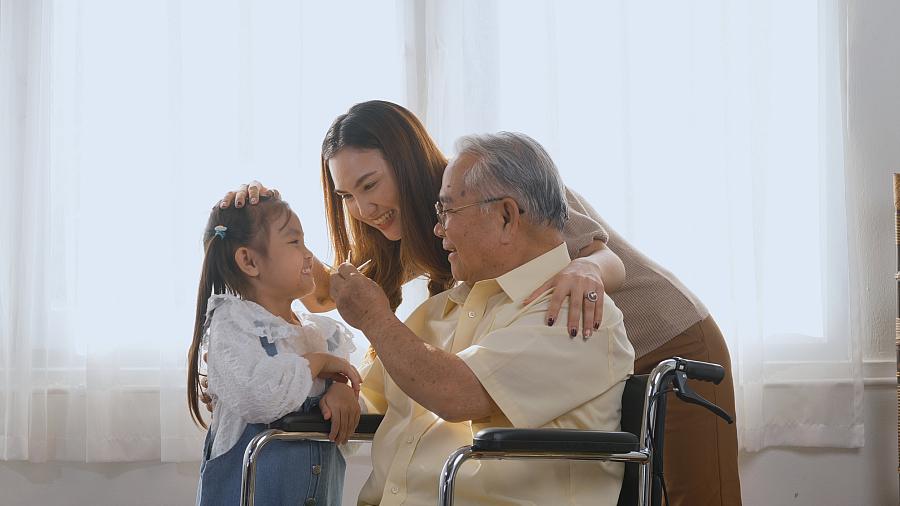A crisis within a crisis: How caregivers hit their breaking point

Photo via Shutterstock/Caitlin Cruz
In Texas, an estimated 3.4 million relatives and friends provide more than 3.2 billion hours of unpaid care for their friends and family each year. This unpaid work — classifying themselves as informal caregivers in the parlance of labor statistics — keeps millions of Texans in their homes and out of our underfunded, state-run institutions. But the mandates of these unpaid caregivers got unexpectedly bigger in the last 18 months because of the chaotic (and sometimes contradictory) responses of state, local and federal governments.
Right alongside those millions needing unpaid care at home are Texas children, needing both regular supervision and care. This overlap created a health crisis within a pandemic: Sandwiched caregivers, or working people responsible for taking care of their children, adult dependents and themselves in the midst of a global health crisis unlike anything we’ve seen in our lifetimes.
This generation of caregivers — your colleague, your best friend, your neighbor, or you — responded as best as they could. But even the people with the least amount of responsibilities felt changed by the last two years. In June 2021, the U.S. Centers for Disease Control and Prevention found that two-thirds of people surveyed who identified themselves as unpaid caregivers faced mental health challenges since March 2020. If that wasn’t unsettling enough, in the same study, these sandwich caregivers are doing even worse while having to take care of more people: Eighty-five percent of those surveyed say they’re experiencing mental health challenges such as anxiety, depression or suicidal ideation during the pandemic. These people and their children and dependents are in crisis, resulting in uneven outcomes and opportunities for children and families with few policies available to support them.
Using data from the Texas Health and Human Services Commission, I’m reporting on these sandwiched caregivers, the people who are giving it their all to make sure everyone in their circle makes it to the next day. In 2009, a state law was implemented to identify caregivers — paid and unpaid — and their needs. I’ll be talking to the lawmakers who shepherded this legislation into law and the advocates who were in Austin to demand change.
I will also interview child psychologists to illustrate how parental mental health crises impact vulnerable children already struggling to understand COVID-19. I plan to interview sociologists and scholars of caregiving and familial structures to highlight policy options outside of Texas that could address the weaknesses in sandwiched caregiving homes. And I’ll be interviewing caregivers across the state of Texas. I want to tell the story of how the last two years of COVID-19 affected them.
When caregivers are pulled in too many directions, children and families suffer. Though we’re still in the midst of a terrible public health crisis, I want to start documenting how this type of family clawed their way through this stressful time. With the data analysis, research and interviews, I will seek to expose the weaknesses in our social safety nets that are letting these Texas families either tread water or collapse.

